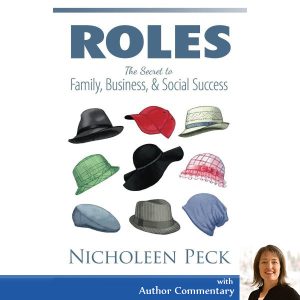“I Resolve…” 5 Steps For Keeping Your Resolutions This Year
It is traditional in western culture to pause for a moment each New Year and write resolutions for the upcoming twelve months. I have always done this, but I have to admit that some years I haven’t really felt like the process was really worth it. I mean, I have thought hard about what I want to fix about myself and then after a few months, or sometimes even a few days, I have fallen back into old habits and it’s as if I never made the resolution at all. This year, I decided to invest a bit more into the process of resolving in order to determine how important resolving really is in my life. If we understand what it means to resolve, setting proper goals and following through will be easier.
At first glance, it appears that the word resolve is a combination of two parts; the prefix re and the root word solve. Based off this apparently obvious meaning of the word it looks likes to resolve means to re-solve a problem or to find the solution to a problem again. Even if this observation was the actual meaning it would be inspiring and help us look at solving problems instead of comparing to others. In Webster’s 1828 Dictionary the world resolve has many actual meanings that are worth our attention.
Resolve comes from the Latin re and solvo, which means “to loose.” It literally means to loosen or break a body into its elements; to simplify a complexity; and to analyze. Resolve can also mean “to melt or dissolve something, to relax or lay at ease, to determine by vote, or to fix in opinion or purpose.”
Resolve is a deeper thing than writing down something we wish or hope for on a piece of paper or in a book. In fact, it is a process of deep change and self-government.
The Resolving Process
Step One – Analyze yourself. Find the flaws and compare them to your ideals that you believe in and hope to aspire to. This is the process of breaking you into your elements.
Step Two – Determine what principle you need to focus on to meet your ideal and eliminate the old habit. For instance, maybe a person has determined in step one that they keep raising their voice or getting angry. The principle needed could be calmness, or perspective.
Step Three – Simplify. Just like in mathematics, when something is simplified the problem or answer to a problem is made easy to understand, so when we determine our course of action it needs to be free from complexities. It needs to be a simple thing we can do to produce the great change. For instance, if a person has a hard time judging other people and really wants to stop that. The simple action to take could be to praise three people each day for good things they have done. Or, one might decide that they will simply look at each person with value. They will focus on the word ‘value’ and try to keep the word in mind whenever a person’s name of face comes to mind. Focusing on praising three times or on thinking the word ‘value’ when thinking of a face or name is doable and simple. But, trying to successfully stop judging cold turkey without replacing the bad habit with a simple good habit will likely end up a failed resolution.
Step Four – Lay aside and replace the bad habit. In order to release yourself from the bondage of the old habit, it is important to deliberately lay aside the negative action and replace it with a positive action.
Step Five – Be fixed in purpose. Step one was dedicated to focusing on what you needed to do to become more of an ideal you. Whenever you focus on true ideals you are essentially focusing on your purpose. For instance, if a person resolved to focus on being calm with their children and spouse they are really focusing on who they are meant to be and on becoming more ideal in their mission.
The process of living purpose is a process dedicated to aligning with goodness and truth. A true and honest resolution makes us better people and exposes us to more goodness during the process of setting the resolution and while working on the goal.
The process of setting goals or resolving exposes us to goodness even if we don’t ‘stick with it.’ Feeling that goodness and self-government power prepares us to use that power and fight for that feeling of goodness again in the future. It is the power that conquers all the ills in the world as well as the power that endows us with great power.
Isn’t it wonderful that we live in a society that carries on a tradition dedicated to self-government and preparing to fulfill purpose in life? Pass this tradition on to your children.
I resolve to make more meaningful resolutions. Resolutions, as I now understand them, are much more about becoming better individuals and refining ourselves than they are about looking good to others. And I think that if more people truly resolved in the spirit of changing their character by principle, then they would be able to stick with their resolutions better. Resolutions focused on impressing others are pie crust resolutions; easily made, easily broken.
What will you resolve this year? Take a few minutes to analyze yourself. It’s never to late to resolve.





